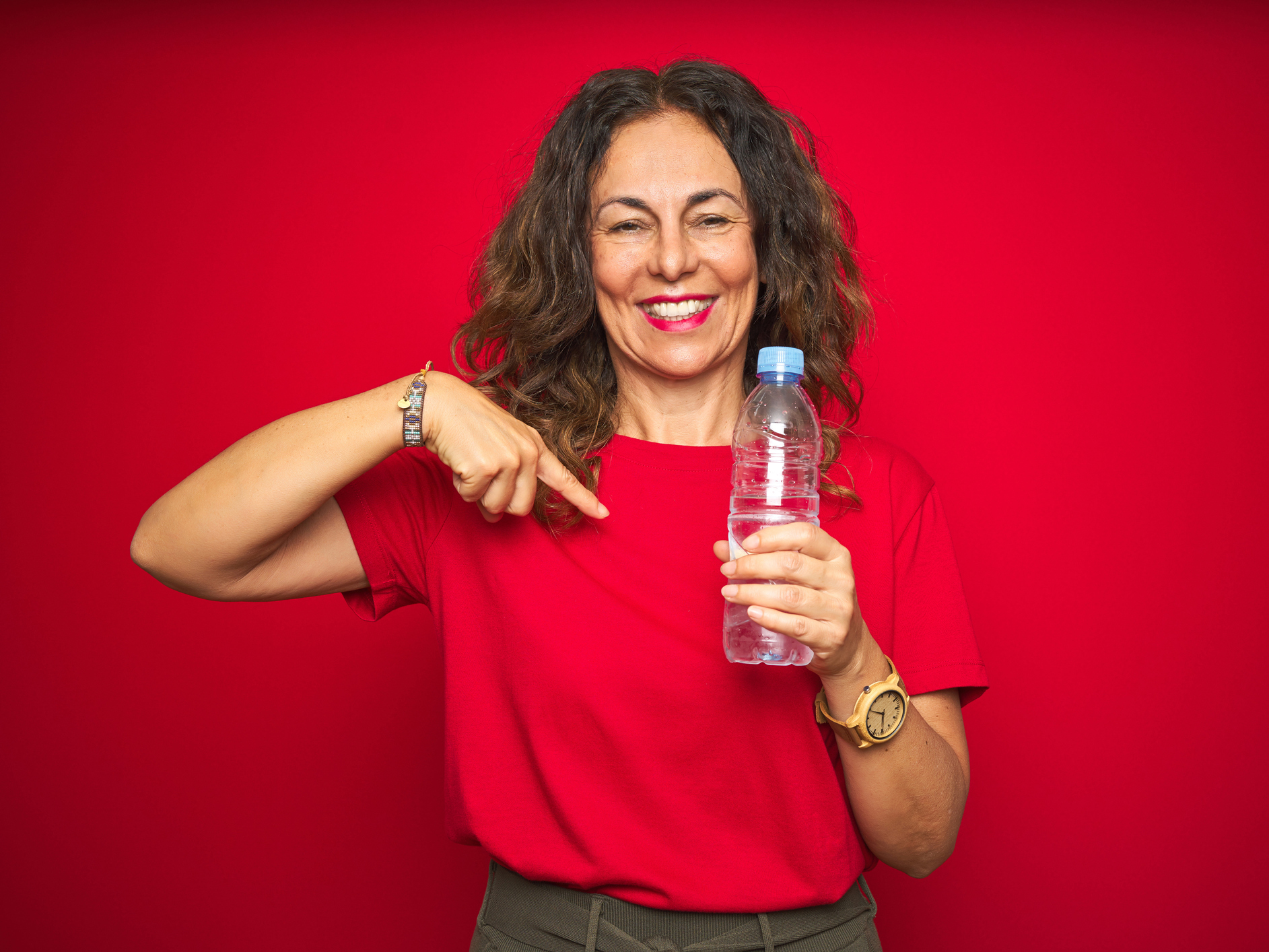Get Easy Health Digest™ in your inbox and don’t miss a thing when you subscribe today. Plus, get the free bonus report, Mother Nature’s Tips, Tricks and Remedies for Cholesterol, Blood Pressure & Blood Sugar as my way of saying welcome to the community!
What too little (or too much water) does to your brain

Changes in your cognitive abilities can start subtly…
Maybe you forget names and words more often. Doctor’s appointments and lunch dates slip your mind. You lose your train of thought in conversations.
As this stuff happens more regularly, you may become concerned. Is it the big D — dementia?
But before you start thinking about worst-case scenarios, there’s something you should do…
Check your hydration levels.
You’re probably well aware that dehydration can cause a wide variety of symptoms ranging from fatigue to migraines. But did you know that it could mess with your thinking skills and memory too?
Underhydration (and overhydration!) take a bite out of your mental abilities
A new study from researchers at Penn State University shows that older women who don’t drink enough water have worse cognitive abilities.
The study included 1,271 women who were 60 or older. Researchers took blood samples to measure their hydration. They also tallied up all the water taken in through food and drinks the previous day.
Next, these women participated in cognitive testing. They completed tests that measured verbal recall, verbal fluency, mental processing speed, sustained attention and working memory. And guess what?
Researchers found that women who had lower hydration levels performed worse on tests related to attention, processing speed and working memory. Not that surprising if you think about how out of sorts dehydration can make you feel. But here’s where things took an unexpected turn…
Women who drank too much water had worse cognitive performance too. Why?
Researchers suspect it’s because overhydrating can cause electrolyte levels to become unbalanced.
So, if you want to keep your cognitive skills from slipping, you have to walk a very fine hydration line.
How to maintain healthy hydration levels
How do you keep hydration levels optimal?
First off, make sure to closely follow hydration guidelines. If you’re a woman over 60, drink eight glasses of water per day. If you’re a man over 60, drink ten glasses of water per day. Don’t wait until you’re thirsty. Thirst isn’t always an accurate gauge of hydration level — especially as you get older. Stick to your RDA of water even if you don’t feel like you need that much.
Related: The great water debate — how much do you need?
What else can you do?
Drink beverages of all kinds, not just water. Downing cup after cup of water can feel like a chore. But a cup of coffee with breakfast or a cup of tea with an afternoon snack feels like a treat. Plenty of other beverages contribute to your hydration level, including coffee, tea, and juice.
Also, be careful with alcoholic beverages. Alcohol is a diuretic that can contribute to dehydration. So, you’ll want to keep your alcohol intake to a minimum to keep your body properly hydrated.
What about overhydration?
That’s far less common than dehydration, but clearly, it happens. To avoid overhydration and the electrolyte imbalance that can follow, keep your water intake paced evenly throughout the day (rather than drinking a ton at once). And consider adding a teaspoon of natural, mineral-rich salt (like Redmond Sea Salt) to your daily routine. That’ll help keep your electrolyte levels healthy and balanced.
Editor’s note: Did you know that when you take your body from acid to alkaline you can boost your energy, lose weight, soothe digestion, avoid illness and achieve wellness? Click here to discover The Alkaline Secret to Ultimate Vitality and revive your life today!
Sources:
- Hydration may affect cognitive function in some older adults — MedicalXpress
- Cognitive performance in relation to hydration status and water intake among older adults, NHANES 2011–2014 — European Journal of Nutrition
- Mild cognitive impairment (MCI) — Mayo Clinic
- Hydration myths may be putting older people’s health at risk — MedicalXpress
- Chugging Water All the Time? How to Avoid Overhydration — Healthline













